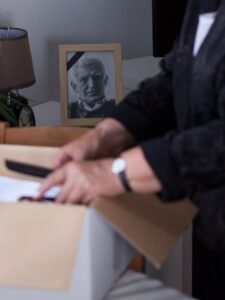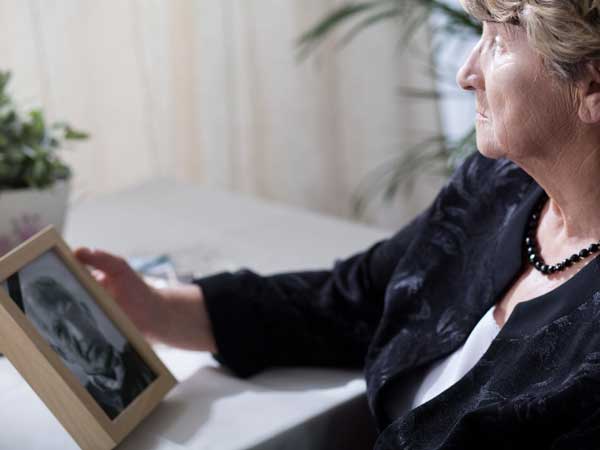After setting a table for two in a dimly lit kitchen in the Ohio Living Swan Creek retirement community, Koryn, age 69, suddenly bursts into tears. Why? Two years have passed since her husband died and was mourned at the nearby Coyle Funeral Home. Koryn realized she mechanically made a place setting for a spouse who was no longer there. Why is it so hard to cope after losing a loved one in death?
If you haven’t experienced it yourself, it’s impossible to understand the depth of the pain caused by the loss of a mate. The human mind only gradually accepts the terrible reality. So it was with Koryn. She found it hard to accept the death of her husband. “It felt unreal,” she says. “I couldn’t believe that he wasn’t going to walk through the door again.”
How to face the loss
In order to start living a fuller life again, widowers need to find the right balance between preserving the memory of their loved one and caring for their own present needs. Here are three suggestions on how to deal with loss…
- It’s okay to cry. Although some think that crying is a sign of weakness or is even harmful, psychologist Dr. Joyce Brothers, herself a widow, likens tears to emotional first aid. Don’t be ashamed of your tears. Crying is normal and helps to relieve pain.
- Try to maintain your normal lifestyle. Although you may feel disoriented for a while, if you have a specific time to sleep, get up, eat, or do certain chores, try to keep the same routine. Plan for what you will do on weekends and special days, such as your wedding anniversary, when the loss tends to be overwhelming.
- Avoid making hasty decisions. The emotional stress of losing a loved one can cloud your judgement. Take your time making major decisions such as whether to sell your home, move, remarry, or what to do with the personal effects of the deceased. Ah, what to do with personal effects? This one is touchy. Are they precious keepsakes or impediments to recovery? “I kept a lot of my wife’s personal things,” says Kevin. “I’m finding that those items bring me more happy memories as time goes by. I didn’t want to get rid of anything.” By contrast, Koryn says: “I don’t need to be surrounded by his personal effects for his memory to live on. I think that disposing of his personal items has helped me to accept reality and make the grieving process easier.”
Tip: If you find that the deceased personal effects are impediments to recovery, contact an empathetic waste management company, such as Horton Hauls Junk Toledo, that will patiently help you clear away some roadblocks to recovery.

Closing
Even though losing a beloved spouse is one of the most traumatic experiences a person could have, thankfully it’s not the end. Rob Liano, author and life coach, stated, “The sorrow we feel when we lose a loved one is the price we pay to have had them in our lives.” Koryn, with difficulty, attempted to look on the positive side of life. And as soon as she felt ready, Koryn tried to find opportunities to take part in activities such as hobbies or trips. She resumed playing tennis and meeting up with friends at the nearby Shadow Valley Tennis Club. These activities can help fill the void. Admittedly, they will not remove the pain, but at least you will gradually learn to deal with the loss.







